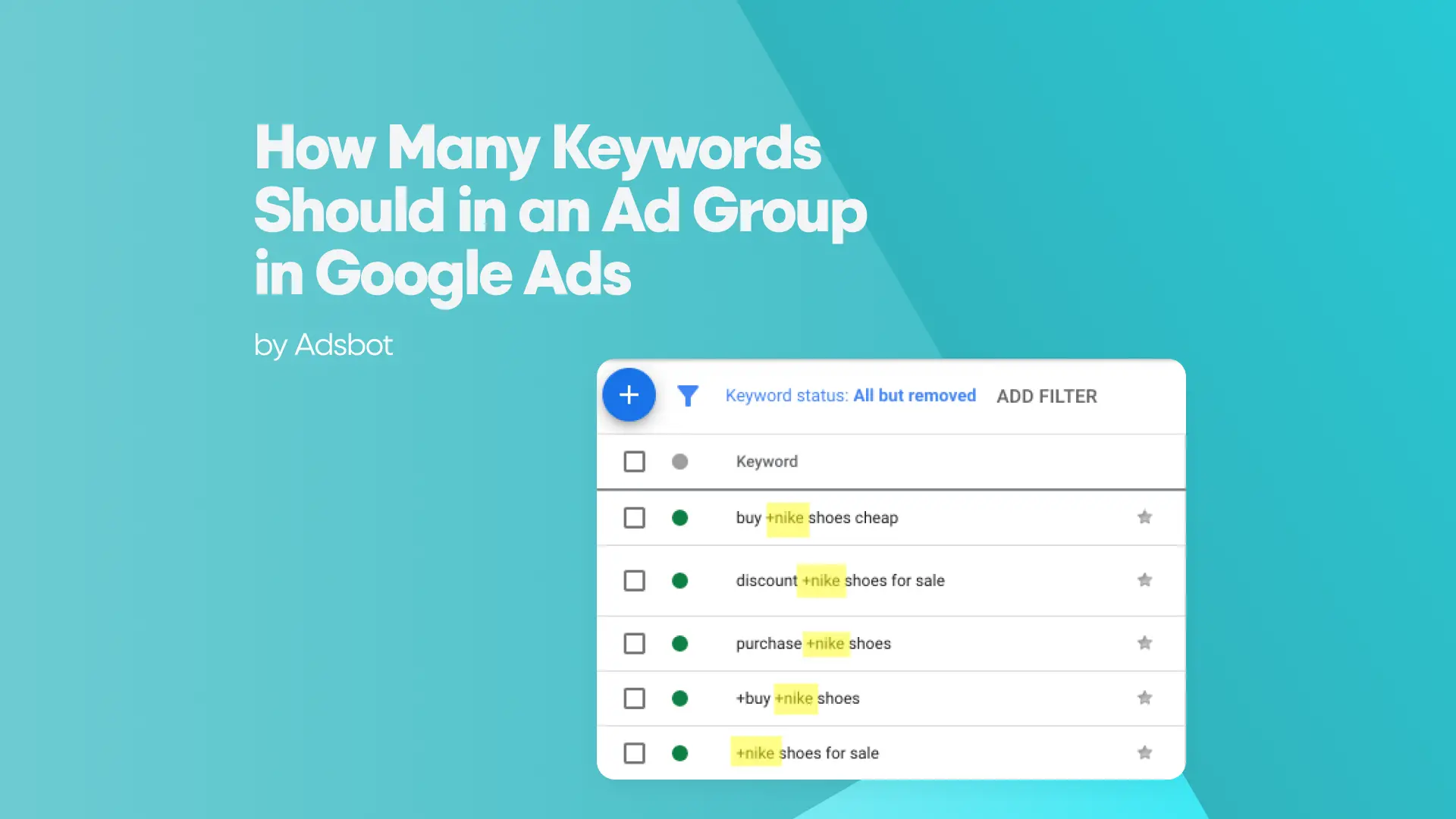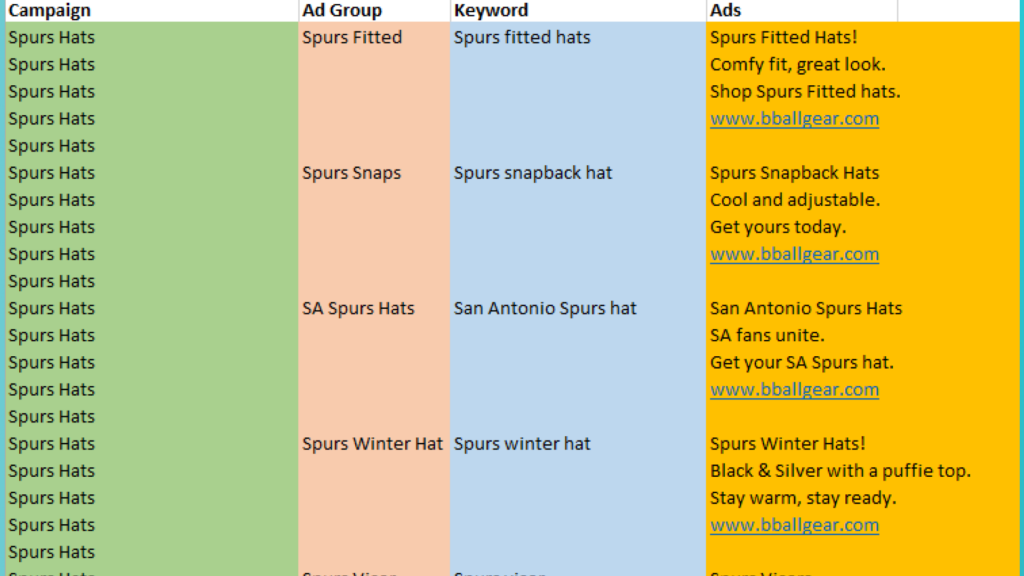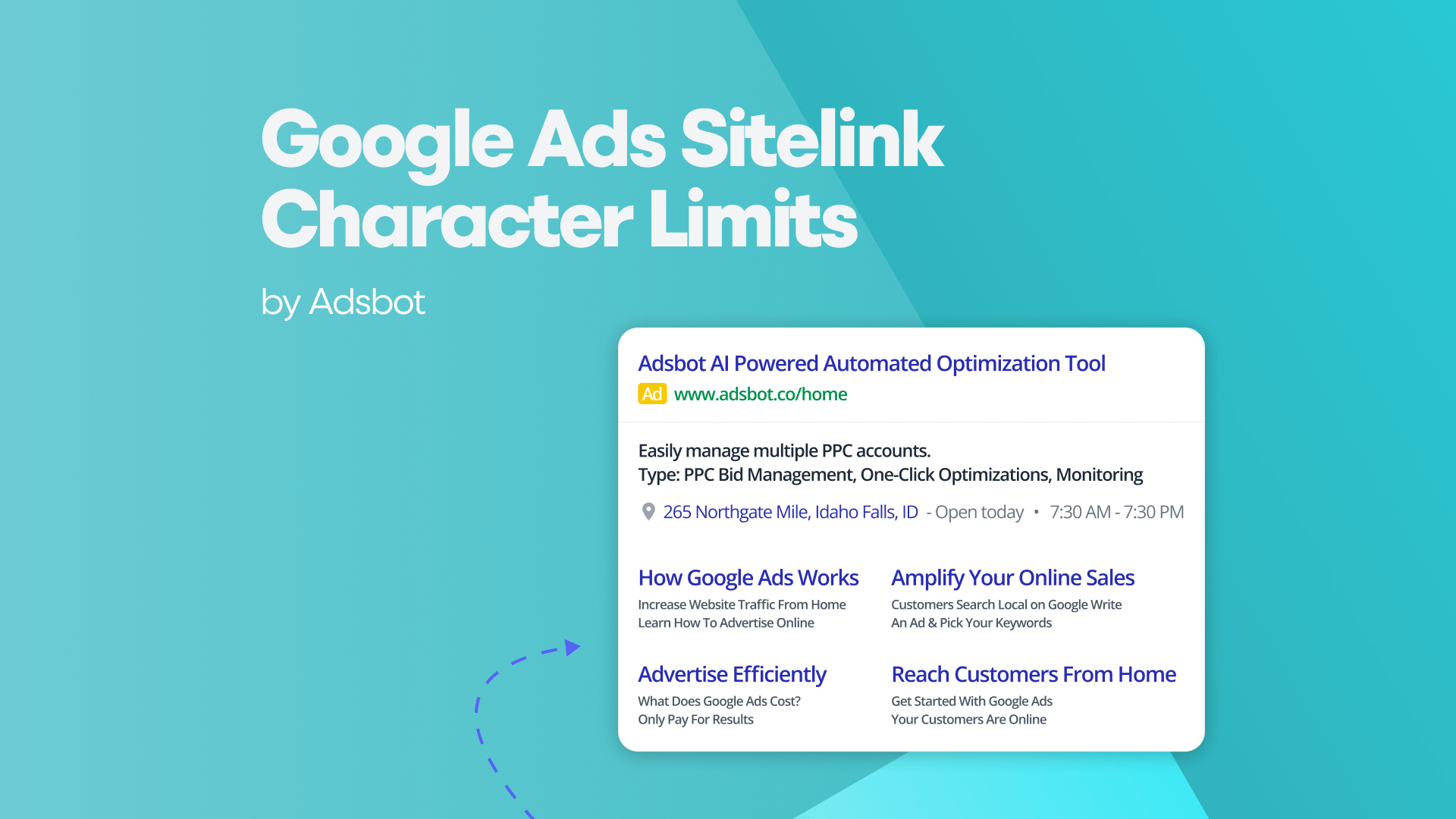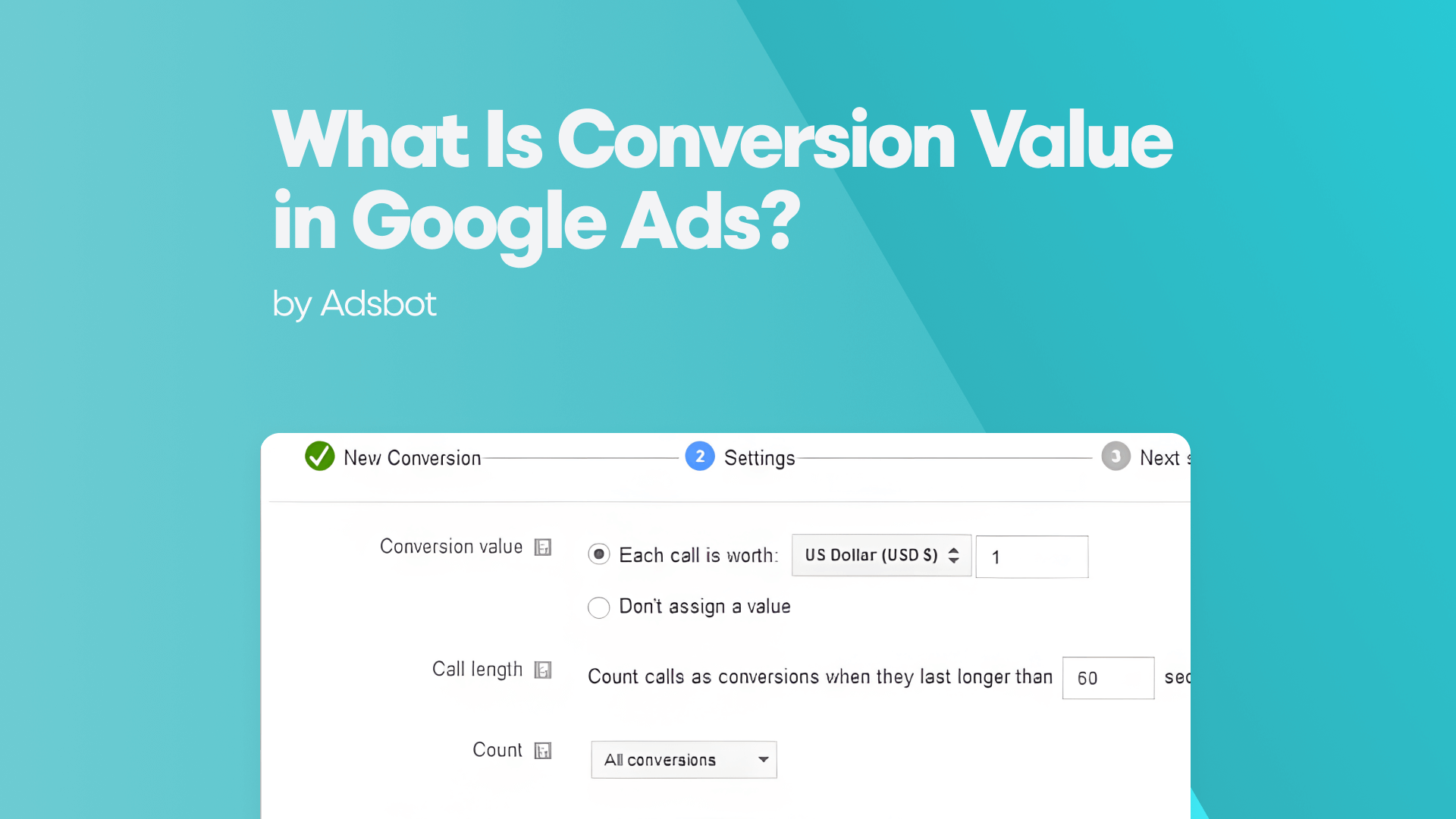Ever wondered if your Google Ads campaigns are packed with too many or too few keywords? Maybe you’ve Googled “How many keywords should I use for Google Ads?” only to find a flood of conflicting answers and outdated tips. If the number of keywords per campaign feels like some kind of PPC black magic, you’re not alone. The truth is, there’s no single magic number. But understanding how many keywords per ad group is ideal (and what Google Ads actually recommends) can make or break your results.
In this guide, we’ll break down exactly how many keywords you should use in Google Ads, why “more” isn’t always better, and how to structure your Google keyword campaign for real ROI. From Google Ads keyword limit rules to best practices for organizing your keywords, we’ve got every angle covered: no fluff, just actionable strategies you can start using today.
1. How Many Keywords Should I Use in Google Ads?
You’ll hear recommendations of using 20–25 keywords per ad group in Google Ads, but those numbers aren’t accurate for every business or campaign type. While it’s technically okay to have 20–25 keywords in an ad group, the right answer for how many keywords for Google Ads is probably between 10 and 20 keywords per ad group for most advertisers. It doesn’t help you to bloat your PPC account with too many keywords. Selecting more general keywords if you’d prefer to reach as many people as possible is a better strategy. If, instead, you add all your keywords and ads to one ad group, a customer might be exposed to multiple messages from the same company, leading to confusion and a lack of trust. No more than 20 keywords per ad group should be used in Google Ads, and this keyword limit helps you get the maximum value out of your campaigns.
2. How Many Keywords Per Ad Group Google Ads
The ideal number of keywords in an ad group will vary depending on your business, but a good rule of thumb is to aim for no more than 20-25 keywords per ad group. While you can get away with using a few more, having too many keywords can be counter-productive, as it becomes difficult to manage the ad groups effectively. For optimal performance, Google recommends having at least 5 keywords in each ad group.
Ever wondered how many keywords Google Ads allows you to use? Google allows for up to 20,000 keywords per ad group and a maximum of 5 million ad group targeting items per account. To get the most out of your campaigns, it is important to organize your keyword lists into manageable ad groups.
3. How Many Keywords Per Campaign?
Answering the question “How many keywords is too many Google Ads?” is not an easy one. The maximum number of keywords in an Ad Group in Google Ads is 20,000, but it is recommended to have no more than 15 keywords per Ad Group. It is also suggested to have no fewer than 3 keywords per Ad Group, and a maximum of 5 million ad group targeting items per account. Having fewer keywords in an Ad Group can help to gain more control and a cleaner keyword range for better results.
4. What is an Ad Group and How Does it Work?
An ad group contains one or more ads that share similar targets. You set a bid, or price, to be used when an ad group’s keywords trigger an ad. Incorporating Google Ads Competitor Analysis can help refine your strategy, ensuring that your targeting stays competitive. However, it is important to avoid including too many keywords in an ad group, as this can be ineffective and cause confusion for Google Ads. When creating an Ad Group, it is important to organize your keyword lists in a way that makes sense and will allow your ads to reach the right audience. Google Ads allows 20,000 keywords per ad group and a maximum of 5 million ad group targeting items per account, such as keywords. However, the best rule of thumb is to use no more than 20 keywords per ad group. By using the Google Ads Keyword Tool, you can search for keywords and ad group ideas, see how a list of keywords might perform, and even combine them into one Ad Group. When considering how many keywords in Google Ads, it is recommended to have at least 5 keywords in each ad group, as this will maximize your chances of reaching the right people with your Ads.
5. How to Organize Your Keyword Lists in an Ad Group
In order to get the most out of your Ad Group, it is important to organize your keyword lists properly. Using the Google Ads Keyword Tool, you can search for related keywords and ad group ideas, see how a list of keywords might perform, and even combine 2-3 ads to test against each other. Relevancy is more important than size—the keywords in a group should be targeted and specific to the customers you are looking to reach. By grouping similar keywords together, you can ensure that your Ad Group is optimized for maximum performance.
6. The Role of Google in Processing Keywords
The role of Google in processing keywords is crucial because it provides the ad groups and the related keywords, ads, and landing pages in order to optimize an AdWords campaign. Google recommends having at least 5 keywords per ad group, although there is no magic number. Additionally, for how many keywords to use in Google Ads, Google’s traditional recommendation suggests having 10-20 keywords per ad group. Single Keyword Ad Groups (SKAGs) are also an effective way to gain more control and cleaner results in a PPC campaign. By running the Google Ads scripts several times, marketers can process all recommended keywords in large accounts. It is important to note that Google Ads and Microsoft Advertising campaigns need to be set up for success if they are to drive sales, generate leads, and increase brand awareness.
7. Why You Should Have At Least 5 Keywords in an Ad Group
Having at least 5 keywords in an ad group is recommended by Google because it helps you to maximize the value of your campaigns. Relevancy is more important than size, and the keywords should be related to the ad content. To achieve the best results, you should try to pick keywords that are relevant to entire ad groups and make sure that your advert reflects the user’s search term. A lengthy campaign will benefit from having more than 10-20 keywords in an ad group, although it’s recommended to have a minimum of 3 ads in each ad group. To get the most out of your campaigns and keyword lists, you should use Google’s keyword processing capabilities, which will help you optimize your keyword lists in an ad group.
8. The Benefits of Having Fewer Keywords in an Ad Group
The benefits of having fewer keywords in an ad group are clear. With fewer keywords, the ad group is easier to manage, and more accurate targeting is possible. Additionally, Google’s quality score algorithm rewards advertisers for having fewer keywords in an ad group since it helps ensure that the right people are seeing the right ads. This, in turn, can help to lower advertising costs and increase your return on investment.
Conclusion
In conclusion, it is safe to say that we answered the questions “Google Ads how many keywords?” and “Google Ads how many keywords per ad group?” In short, you should use around 15 keywords per ad group, depending on your campaign type.
Popular Posts
-
How Many Keywords Should Be In an Ad Group in Google Ads?
Ever wondered if your Google Ads campaigns are packed with…
Read more -
Google Ads Script for Dummies: An Introduction
Imagine you have an e-commerce website that sells licensed superhero…
Read more -
Google Ads Sitelink Character Limits
Your Google Ads are cutting off in the middle of…
Read more -
What Is Conversion Value in Google Ads?
What if you could put a price tag on every…
Read more
Register for our Free 14-day Trial now!
No credit card required, cancel anytime.





